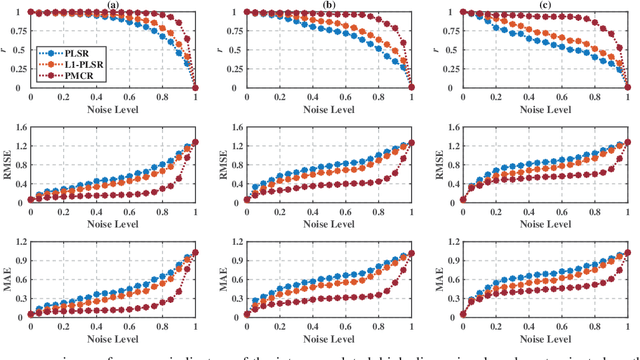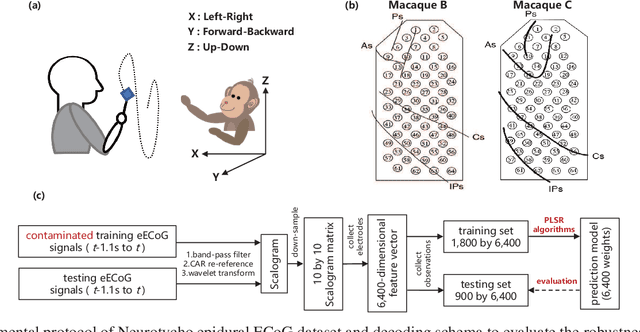Partial Maximum Correntropy Regression for Robust Trajectory Decoding from Noisy Epidural Electrocorticographic Signals
Paper and Code
Jun 23, 2021



The Partial Least Square Regression (PLSR) algorithm exhibits exceptional competence for predicting continuous variables from inter-correlated brain recordings in brain-computer interfaces, which achieved successful prediction from epidural electrocorticography of macaques to three-dimensional continuous hand trajectories recently. Nevertheless, PLSR is in essence formulated based on the least square criterion, thus, being non-robust with respect to complicated noises consequently. The aim of the present study is to propose a robust version of PLSR. To this end, the maximum correntropy criterion is adopted to structure a new robust variant of PLSR, namely Partial Maximum Correntropy Regression (PMCR). Half-quadratic optimization technique is utilized to calculate the robust latent variables. We assess the proposed PMCR on a synthetic example and the public Neurotycho dataset. Compared with the conventional PLSR and the state-of-the-art variant, PMCR realized superior prediction competence on three different performance indicators with contaminated training set. The proposed PMCR was demonstrated as an effective approach for robust decoding from noisy brain measurements, which could reduce the performance degradation resulting from adverse noises, thus, improving the decoding robustness of brain-computer interfaces.
 Add to Chrome
Add to Chrome Add to Firefox
Add to Firefox Add to Edge
Add to Edge